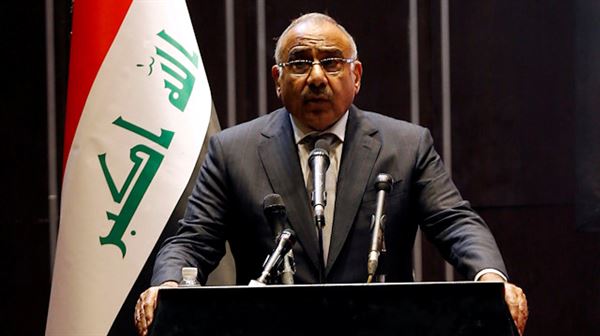The latest wave of anti-government protests in Iraq have caused "great economic damage," Prime Minister Adel Abdul-Mahdi said Sunday. Abdul-Mahdi sai
The latest wave of anti-government protests in Iraq have caused “great economic damage,” Prime Minister Adel Abdul-Mahdi said Sunday.
Abdul-Mahdi said in a written statement, demonstrations have wracked up billions of dollars in damages and added protestors achieved most of their objectives and many decisions were taken to meet their demands.
At least 260 people have been killed and 12,000 others injured since demonstrations began in several Iraqi provinces Oct. 25, according to the High Commission of Human Rights.
Abdul-Mahdi urged a return to normal life and said threatening the oil industry, blocking access to ports and delaying commercial goods entrance to Iraq caused price increases.
Some groups resorted to acts of sabotage, such as blocking roads, setting fires, plundering and entering into conflict with the security forces, he said, adding that security forces were given strict instructions not to use real bullets or lethal weapons.
Iraqi flag unfurled at Iran’s Consulate in Karbala
Meanwhile, scores of demonstrators stormed Iran’s Consulate in the the southern city of Karbala and unfurled the Iraqi flag at the building’s entrance.
Hundreds of demonstrators gathered in front of the consulate and displayed the flag at the entrance of the building after they entered the building by scaling the fences, demonstrator Hussain an-Nasiri told Anadolu Agency.
Demonstrators did not enter the building. They stoned it and chanted slogans asking Iranian diplomats to leave Karbala, said an-Nasiri.
Anger has been building in Iraq in recent years due to rising unemployment and rampant corruption. Many in the country have limited access to basic services such as electricity and clean water.
Iraq’s youth unemployment is around 25%. It is also ranked the 12th most-corrupt country in the world by several transparency organizations, according to the World Bank.
